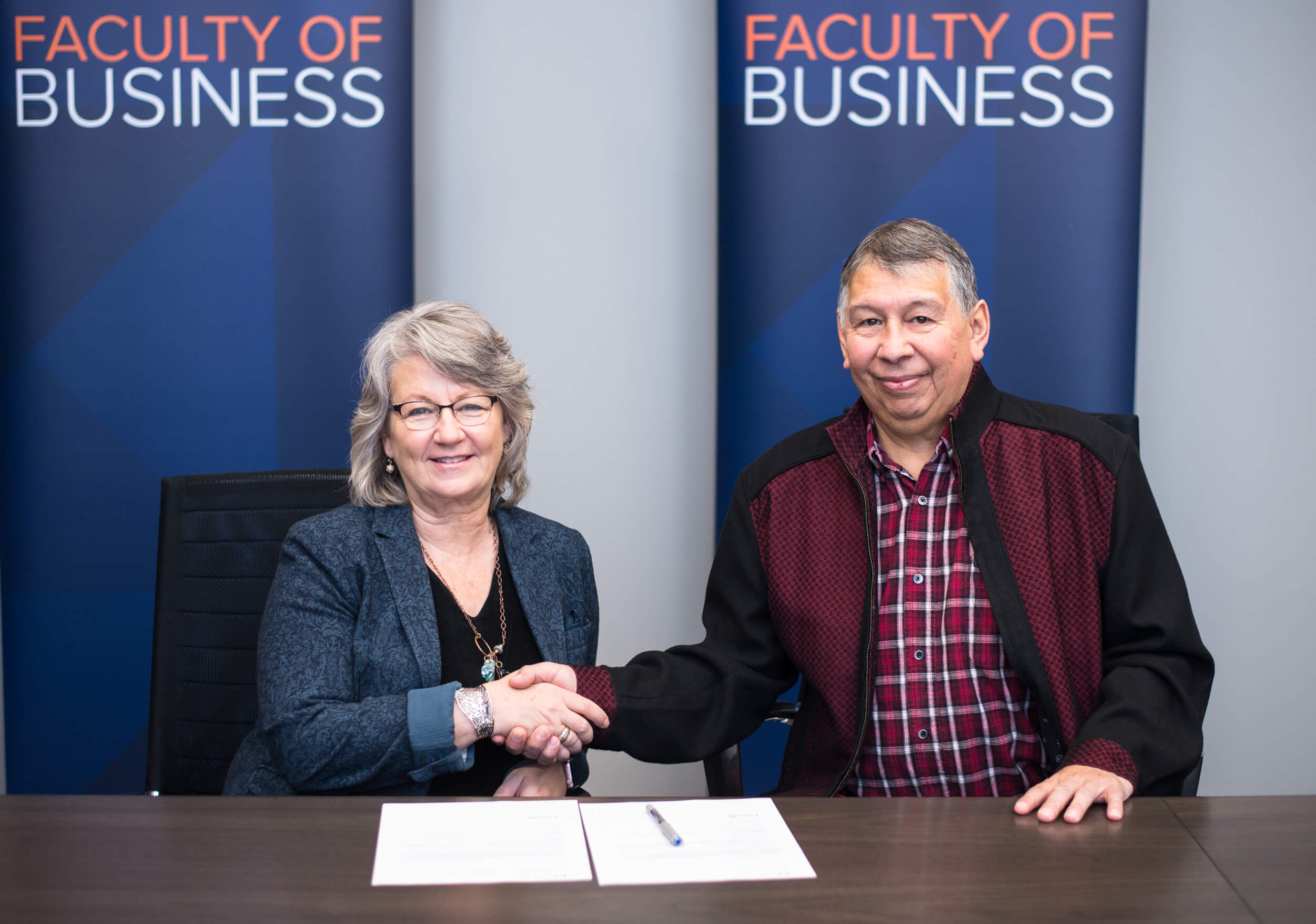A business degree designed for Indigenous learners
This article originally appeared on IvyExec.
The Aboriginal Financial Officers Association of Alberta (AFOA Alberta) understands that its mission is critical to granting access to educational opportunities. By empowering Indigenous people through education, communities can work towards solving some of the grand problems facing our world, like social challenges, climate change, political unrest, and growing divisions within society.
“The demands placed on the Indigenous public servants continues to increase, business opportunities are expanding, and partnership opportunities are flourishing,” said Robert Andrews, Executive Director at AFOA Alberta. “However, the positive effects can only be realized with a good grounding in business skills and competencies. In addition, managerial skill augments existing technical skills to improve outcomes for programs in their communities.”
The AFOA Alberta recognized higher education needs reform to address the obstacles facing Indigenous people and strengthen the elements that increase success.
“Through a number of processes, our organization sought to understand systemic barriers that inhibit learners from pursuing higher education,” said Andrews. “These improved outcomes positively impact people’s lives; indeed, they help to make our world a better place.”
After determining what those barriers were, AFOA Alberta partnered with Athabasca University to create a Bachelor of Commerce degree designed specifically for Indigenous learners.
A custom-designed Bachelor of Commerce program
Following community consultation and research, AFOA identified barriers that prevent Indigenous people from successfully starting or completing post-secondary education. Work and family obligations and social isolation are just some of the challenges facing Indigenous learners. AFOA Alberta’s primary goal is to tackle these barriers.
To make higher education more inclusive, AFOA Alberta and Athabasca University’s Faculty of Business developed a unique Bachelor of Commerce program that pairs mostly online course delivery with face-to-face instruction and one-on-one mentors. In-person classes typically take place on the weekends, so they are easier for students to attend. A peer support network for Indigenous students also connects people going through similar experiences, reinforcing a sense of belonging.
“We take a very individualized, personalized process to learning. The students are placed in small groups or learning communities; they support each other academically as well as professionally and personally,” Andrews explains.
What’s more, the course content is made relevant with immediate, real-world applications. Students can use the knowledge and resources they gain in the classroom to improve their community and generate opportunities for themselves and their neighbours.
“Through this innovative collaboration, Athabasca University may increase the social and economic outcomes for many Indigenous community members, which contributes in a significant way to the betterment of society,” Andrews says.
“Through this innovative collaboration, Athabasca University may increase the social and economic outcomes for many Indigenous community members, which contributes in a significant way to the betterment of society.”
– Robert Andrews, AFOA Alberta
Making an impact
Through Athabasca University’s Bachelor of Commerce program, students can develop new skills and competencies while staying in their home communities.
“They can synthesize Westernized management practices with their own Indigenous beliefs to support their programs in their organizations. The best of both worlds can be fused together to create something that can be uniquely beneficial to the learner’s community,” says Andrews.
Specifically, graduates will be better equipped to lead businesses and Indigenous organizations and contribute to their local economy. Not only can they create products and services that serve Indigenous people, but they also can develop partnerships and joint ventures as well.
“Indigenous business leaders must have the essential skills to ensure the best value and use of resources for their communities,” Andrews explains. By implementing competitive business strategies, Indigenous business owners help to generate economic growth for all Indigenous people.
What’s more, these learners become role models for future generations. Andrews notes that Athabasca University has grandmothers enrolled in this Bachelor of Commerce program. They say they want their children and grandchildren to see them succeed academically. Setting this precedent proves what is really possible.
Higher education at Athabasca University’s Faculty of Business is about more than just learning business finesse. Graduates are better equipped to solve social problems through economic empowerment.
“Individuals and communities are the direct beneficiaries of a population with higher education; individuals must be technically competent in their discipline, but there is a need to synthesize complex issues, to challenge existing assumptions, and to creatively co-develop solutions,” says Andrews.

The power of remote learning
Combining distance learning with face-to-face cohorts is a promising development for Indigenous communities. In Canada, the United States, and elsewhere, online university programs make higher education more accessible and inclusive.
“In order to expand programming into non-traditional markets, universities must look at how their programs are delivered and how best to reach those markets, in ways that may challenge the traditional approaches,” Andrews says.
And Athabasca University is responding.
“I’m quite passionate about all of this, as many times in my own life, I might have been derailed without a helping hand from an educator I trusted, a professor who showed me what was possible and supported me in various ways,” says Dr. Deborah Hurst, Athabasca University’s Faculty of Business Dean. “It has become part of my life’s mission to pay it forward and to find ways to help others gain access to the great programs we have. AU has done a lot with the open concept to remove barriers to entry.”
It’s through partnerships like this with AFOA Alberta that these types of programs are possible; empowering learners and enabling their continued growth.